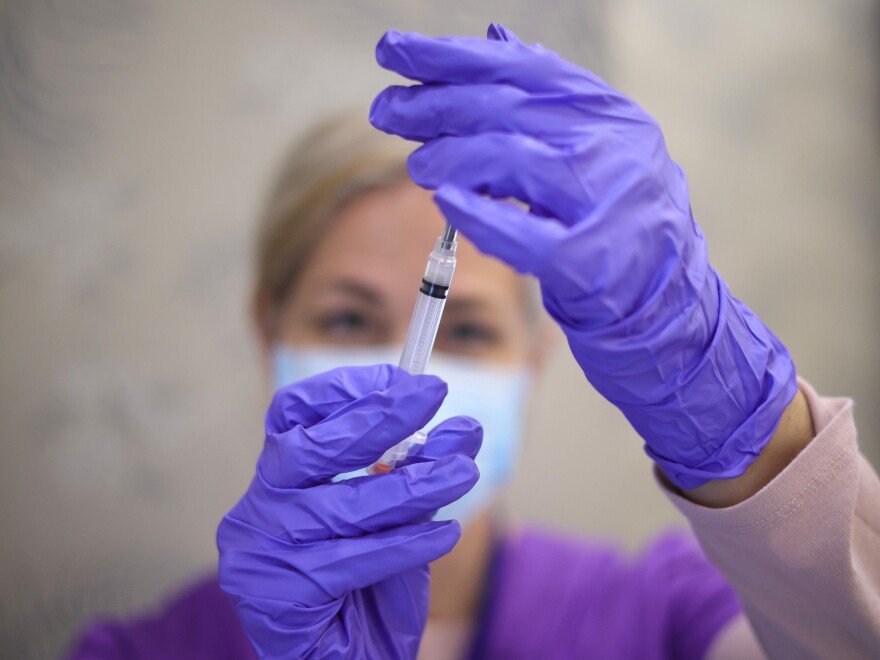A panel of advisers to the Food and Drug Administration on Thursday unanimously recommended that the agency authorize a booster dose of the Moderna COVID-19 vaccine at least six months after completion of the initial two-dose regimen.
The recommendation applies to people 65 years and older, those 18 to 64 who are at high risk of severe COVID-19 and those people in the same age group whose work or institutional exposure puts them at high COVID-19 risk.
The recommendation mirrors the authorization that the FDA gave to Pfizer-BioNTech COVID-19 booster doses in September.
The 19-0 vote came after presentations by representatives from the FDA and Moderna and committee discussion. The FDA typically follows the advice of its advisory committees, though it isn't required to.
Moderna's COVID-19 vaccine booster is half the dose of the initial shots used in its two-shot vaccination — 50 micrograms of mRNA versus 100 micrograms per each initial shot.
To set the stage, Dr. Peter Marks, director of the FDA's Center for Biologics Evaluation and Research, made introductory remarks as the meeting got underway Thursday morning. "It's important to remember that the vaccines still provide strong protection against serious outcomes, especially for younger age groups," he said. "The vaccine effectiveness against mild to moderate disease does appear to wane over time for the different vaccines. And we do need to account for the fact that mild to moderate COVID-19 can be associated with adverse outcomes, such as blood clots and long COVID-19, even in those who have breakthrough infections after vaccination."
The panel heard from researchers from Israel who gave an update on the experience with the Pfizer-BioNTech booster, which uses the same kind of mRNA technology as Moderna's vaccine.
"The administration of the booster dose helped Israel dampen infections and severe cases in the fourth wave," said Dr. Sharon Alroy-Preis, director of public health services at the Israeli Ministry of Health. An analysis of side effects, including heart inflammation, was reassuring, she said, especially for the most worrisome problems. "I'm very confident about the serious events."
Several of the committee members said the Israeli data sheds important light on the role of boosters and was persuasive.
Some committee members said consistency with the previous action on the Pfizer-BioNTech booster was important too.
"I support this [emergency use authorization] because we've already approved it for Pfizer, and I don't see how we can possibly not approve it for Moderna and not have most U.S. folks completely confused," said Dr. Stanley Perlman of the University of Iowa. "I think it's a pragmatic issue."
Just before the committee voted, Dr. Eric Rubin, editor-in-chief of The New England Journal of Medicine, acknowledged that there was incomplete information and some unanswered questions about the Moderna booster. "The data are not perfect," he said, "but these are extraordinary times and we have to work with imperfect data."
After the vote, the panel discussed a separate question posed by the FDA: Should use of the Pfizer-BioNTech and Moderna boosters be expanded to the general population younger than 65 (but at least 18)? The expert panel wasn't inclined to support that.
The FDA's Marks acknowledged that there was not much appetite for lowering the age range much, if at all, for general boosting.
Copyright 2021 NPR. To see more, visit https://www.npr.org.









